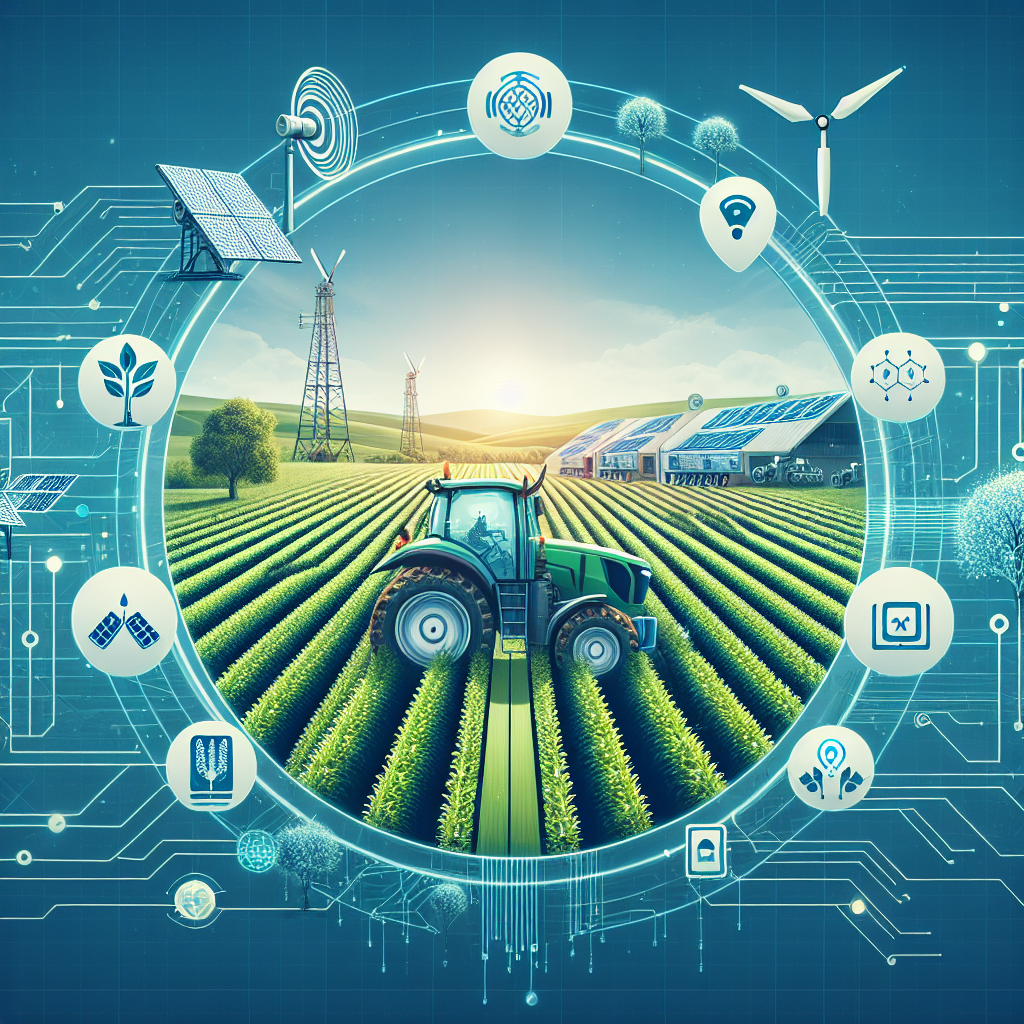Sustainable Agriculture 3.0: The Future of Farming with AI
In recent years, there has been a growing focus on sustainable agriculture as a way to address the challenges of feeding a growing global population while minimizing the impact on the environment. Sustainable agriculture 3.0, also known as precision agriculture or smart farming, is the latest evolution of sustainable farming practices that leverages the power of artificial intelligence (AI) to optimize crop production, reduce waste, and increase efficiency.
AI in agriculture has the potential to revolutionize the way we grow food by providing farmers with real-time data and insights that can help them make more informed decisions. From planting and irrigation to pest control and harvest, AI-powered tools can help farmers improve crop yields, reduce water usage, and minimize the use of pesticides and fertilizers.
One of the key benefits of AI in agriculture is its ability to analyze vast amounts of data from sensors, drones, satellites, and other sources to provide farmers with actionable insights. For example, AI can help farmers monitor soil moisture levels and temperature, detect pests and diseases, and predict crop yields with greater accuracy than ever before. This data-driven approach allows farmers to make more precise decisions about when and where to plant, water, fertilize, and harvest their crops, leading to higher yields and lower costs.
Another advantage of AI in agriculture is its ability to automate routine tasks and optimize farm operations. For example, AI-powered robots can plant and weed crops, drones can monitor fields for signs of disease or pest infestations, and smart irrigation systems can adjust water levels based on real-time weather data. By automating these tasks, farmers can save time and labor costs, while also reducing the use of chemicals and water.
AI can also help farmers make more sustainable choices by providing insights into the environmental impact of their farming practices. For example, AI can analyze satellite imagery to track deforestation, monitor soil erosion, and assess the carbon footprint of different farming methods. By identifying areas where sustainability can be improved, farmers can make more informed decisions about how to reduce their environmental impact and protect natural resources for future generations.
Overall, sustainable agriculture 3.0 represents a new era of farming that is more efficient, productive, and environmentally friendly than ever before. By harnessing the power of AI, farmers can optimize their operations, increase their yields, and reduce their impact on the environment, helping to create a more sustainable food system for the future.
FAQs:
Q: What is sustainable agriculture 3.0?
A: Sustainable agriculture 3.0, also known as precision agriculture or smart farming, is the latest evolution of sustainable farming practices that leverages the power of artificial intelligence (AI) to optimize crop production, reduce waste, and increase efficiency.
Q: How does AI help farmers in sustainable agriculture?
A: AI helps farmers in sustainable agriculture by providing real-time data and insights that can help them make more informed decisions about planting, irrigation, pest control, and harvest. AI can analyze vast amounts of data from sensors, drones, satellites, and other sources to provide farmers with actionable insights that can lead to higher yields and lower costs.
Q: What are some examples of AI in agriculture?
A: Some examples of AI in agriculture include AI-powered robots that can plant and weed crops, drones that can monitor fields for signs of disease or pest infestations, and smart irrigation systems that adjust water levels based on real-time weather data.
Q: How can AI help farmers make more sustainable choices?
A: AI can help farmers make more sustainable choices by providing insights into the environmental impact of their farming practices. For example, AI can analyze satellite imagery to track deforestation, monitor soil erosion, and assess the carbon footprint of different farming methods, helping farmers make more informed decisions about how to reduce their environmental impact.
Q: What are the benefits of sustainable agriculture 3.0?
A: The benefits of sustainable agriculture 3.0 include increased crop yields, reduced waste, lower costs, and a smaller environmental footprint. By harnessing the power of AI, farmers can optimize their operations, increase their yields, and reduce their impact on the environment, creating a more sustainable food system for the future.

